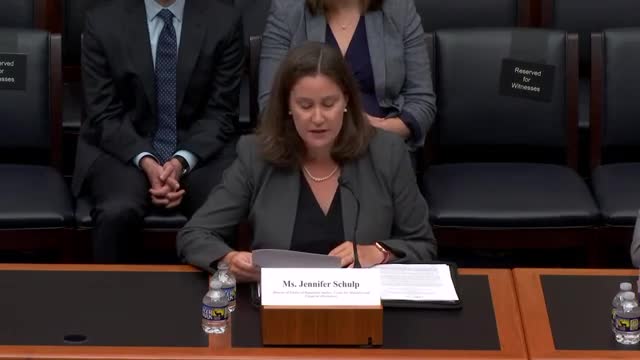SEC's enforcement strategy stifles US crypto innovation
September 19, 2024 | Financial Services: House Committee, Standing Committees - House & Senate, Congressional Hearings Compilation
This article was created by AI summarizing key points discussed. AI makes mistakes, so for full details and context, please refer to the video of the full meeting. Please report any errors so we can fix them. Report an error »

In a recent government meeting, concerns were raised regarding the Securities and Exchange Commission's (SEC) approach to regulating digital assets under Chairman Gary Gensler. Critics argue that the SEC's strategy, characterized as \"enforce first, make rules never,\" effectively creates a de facto ban on cryptocurrency activities in the United States. This approach has led to significant regulatory and compliance risks for those engaging in digital asset-related activities, prompting many developers and projects to relocate outside the U.S. to avoid the uncertainty.
The SEC's existing regulations are deemed inadequate for the unique characteristics of digital assets, leaving market participants without clear guidance on compliance. For instance, the SEC's registration rules require disclosures that are often irrelevant or impossible for decentralized software projects, which do not conform to traditional business models. This lack of clarity extends to secondary trading and digital asset marketplaces, where the SEC's rules clash with the operational realities of blockchain technology.
Moreover, the SEC has been criticized for its reluctance to engage with market participants seeking guidance and for prioritizing enforcement actions over rulemaking. This \"rulemaking by enforcement\" strategy has created a hostile regulatory environment, where entities face penalties for non-compliance with vague regulations. Allegations of misconduct within the SEC, including misrepresentations to a federal court, have further fueled concerns about the agency's good faith in its regulatory efforts.
Lee Reiners, a financial regulation expert from Duke University, emphasized the need for the SEC to utilize its existing tools to develop a more constructive regulatory framework for digital assets. He called for a shift away from the current enforcement-heavy approach to one that fosters clarity and compliance, which is essential for the growth and innovation of the digital asset sector in the U.S.
The SEC's existing regulations are deemed inadequate for the unique characteristics of digital assets, leaving market participants without clear guidance on compliance. For instance, the SEC's registration rules require disclosures that are often irrelevant or impossible for decentralized software projects, which do not conform to traditional business models. This lack of clarity extends to secondary trading and digital asset marketplaces, where the SEC's rules clash with the operational realities of blockchain technology.
Moreover, the SEC has been criticized for its reluctance to engage with market participants seeking guidance and for prioritizing enforcement actions over rulemaking. This \"rulemaking by enforcement\" strategy has created a hostile regulatory environment, where entities face penalties for non-compliance with vague regulations. Allegations of misconduct within the SEC, including misrepresentations to a federal court, have further fueled concerns about the agency's good faith in its regulatory efforts.
Lee Reiners, a financial regulation expert from Duke University, emphasized the need for the SEC to utilize its existing tools to develop a more constructive regulatory framework for digital assets. He called for a shift away from the current enforcement-heavy approach to one that fosters clarity and compliance, which is essential for the growth and innovation of the digital asset sector in the U.S.
View full meeting
This article is based on a recent meeting—watch the full video and explore the complete transcript for deeper insights into the discussion.
View full meeting